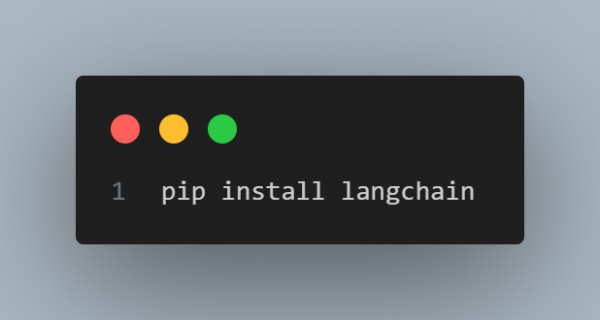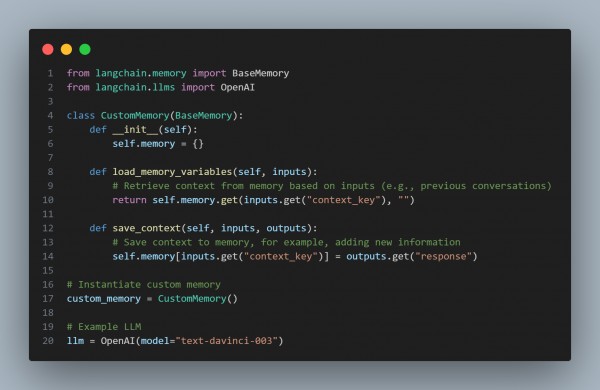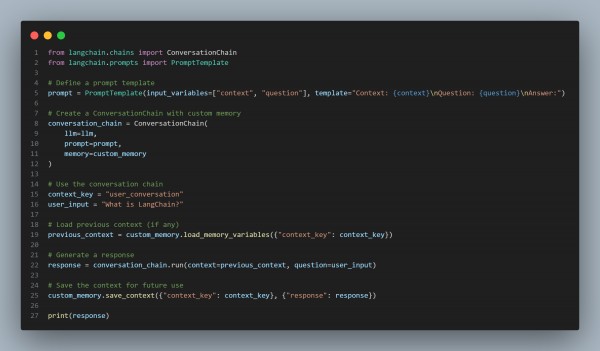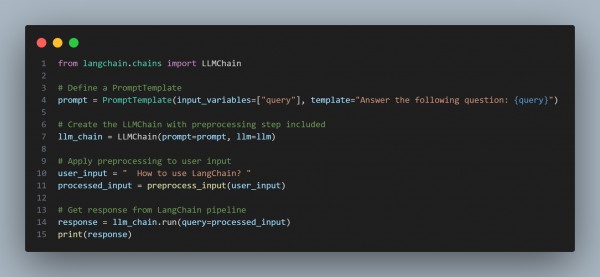To handle context more effectively in LangChain, you can create custom memory mechanisms using LangChain's memory components. You can define a custom memory class that stores and retrieves relevant data to maintain the context of a conversation or task.
Here are the steps you can follow:
- Install LangChain
- Ensure LangChain is installed.
- Define a Custom Memory Class
- You can define a custom memory class that stores and updates context based on user interactions.
- Integrate Custom Memory into a Chain
- You can integrate your custom memory into a LangChain pipeline using LLMChain or ConversationChain.
- Update and Retrieve Context Dynamically
- You can update and retrieve the context in real-time based on the flow of the conversation, ensuring relevant context is maintained across interactions.
Here is the code snippets for each steps you can refer to:




In the above code, we are using the following:
- Custom Memory Class: Create a custom memory class to store and retrieve context.
- Integrate with LangChain: Use the custom memory in a chain or agent, such as ConversationChain.
- Dynamic Context Handling: Dynamically update and retrieve context to maintain conversation history and improve interactions.
Hence, by referring to the above, you can create custom memory mechanisms in LangChain for better context handling.
 REGISTER FOR FREE WEBINAR
X
REGISTER FOR FREE WEBINAR
X
 Thank you for registering
Join Edureka Meetup community for 100+ Free Webinars each month
JOIN MEETUP GROUP
Thank you for registering
Join Edureka Meetup community for 100+ Free Webinars each month
JOIN MEETUP GROUP